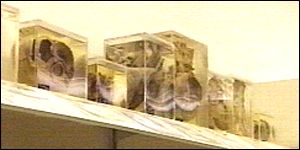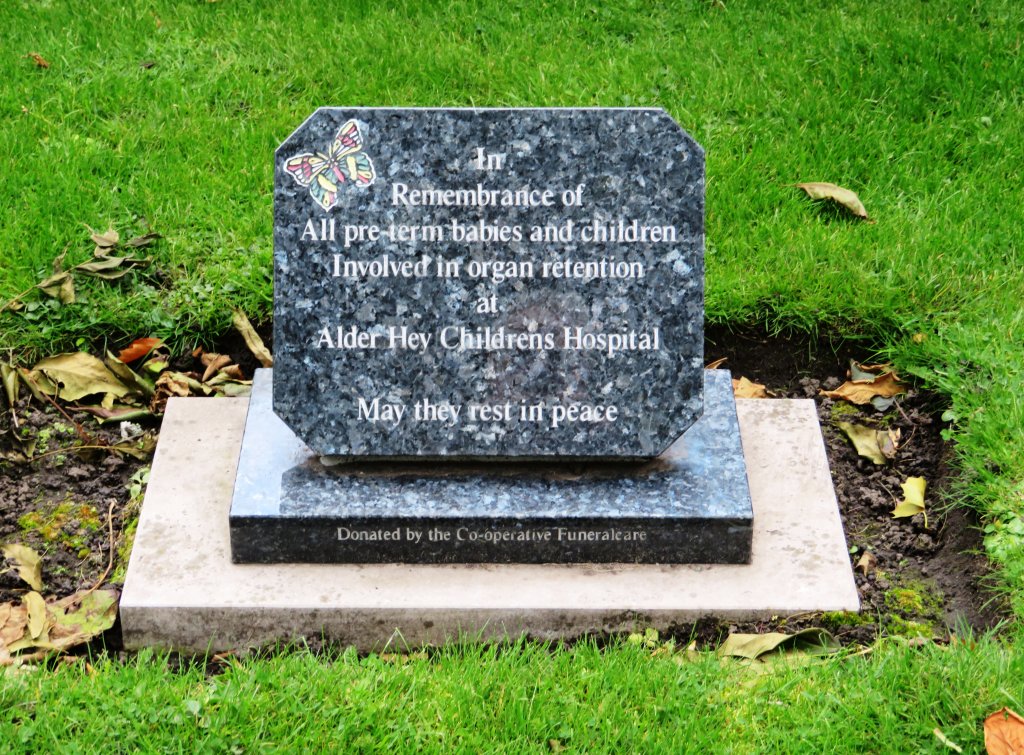I have always been interested in ethical problems; after completing an ethics and philosophy A level I knew I would be interested in the subjects covered in the ethics and law lecture. My mum works for NHS organ and tissue donation, specifically working to improve the way our organ donation system works. This includes the ethical implications that come hand in hand with organ donation. Due to this, I have always been fascinated by ethical issues regarding organ donation.

As soon as I heard about the Alder Hey organ scandal it instilled a great deal of emotion in me, due to the baffling concept of organ removal, retention, and disposal without consent. Especially as a key aspect of the UK’s current organ donation system is based on consent.
What was the Alder Hey scandal?
In 1999 it surfaced that the Alder Hey hospital in Liverpool had been removing various whole organs, hearts, and brains at necropsy from children, without the consent of parents1 . After the inquiry in January 2001, a singular pathologist named Dick van Velzen was charged with committing malpractice.

As outlined in the inquiry the pathologist removed around 850 organs during or after post-mortem and left them in jars, incorrectly processed and uncared for. Many of which were not histologically examined.
‘systematically stripped of their organs’
Royal Liverpool Children’s Inquiry. Report. London: Stationery Office; 2001. www.rlcinquiry.org.uk/ (accessed 2 February 2001) [Google Scholar]
Reflecting on this information I realised the severity of the Alder Hey scandal. It is difficult to imagine how devastating it would’ve been for parents realising they were denied the opportunity to bury their children whole. For parents processing the unexplainable grief of losing a child, I could only feel pain thinking about how much more difficult the process was made because of the Alder Hey scandal.
What happened as a result of the Alder Hey scandel?
The Alder hey scandal came off the back of the BRI cardiac scandal. Due to the nature and timing of the public release the NHS and government were under a lot of pressure to make a change. The Alder Hey scandal caused a revision of the human tissue act of 19612. The revision claimed to remove any confusion between ‘lack of objection’ and ‘informed consent’ which was where the original confusion lay when collecting organs in the Alder Hey scandal. The department of health and royal college of pathologists should instruct all pathologists that written consent is needed to retain tissue samples and organs. Consent must be gained for each organ retained.
It may never be possible to remedy the pain and suffering of the families at Alder Hey; their legacy, however, must be that activities like those at Alder Hey never occur again.
Bauchner H, Vinci R. What have we learnt from the Alder Hey affair? That monitoring physicians’ performance is necessary to ensure good practice. BMJ. 2001 Feb 10;322(7282):309-10. doi: 10.1136/bmj.322.7282.309. PMID: 11159638; PMCID: PMC1119560.
The revision of this act also brought to light the lack of training for physicians, when talking to and gaining consent from family members. It is not known how many organs and tissue samples collected before the Alder Hey scandal was as a result of proper consent. This showed the need for change. When looking at laws and medical practice and as our technologies and advancements change our laws and practice should change along with them.

The alder hey scandal was specifically eye-opening to me due to my mum’s background in organ donation, along with my idealistic view of our healthcare system. The Alder Hey scandal definitely shook the nation, however I am hopeful that it helped us define consent regarding organ donation. As discussed in the journal, ‘what have we learned from the alder hey affair?’, this part of history will help prevent unethical practice. Teaching us to update medical laws, as we update medical technologies.
References
- Royal Liverpool Children’s Inquiry. Report. London: Stationery Office; 2001. www.rlcinquiry.org.uk/ (accessed 2 February 2001) [Google Scholar]
- Bauchner H, Vinci R. What have we learnt from the Alder Hey affair? That monitoring physicians’ performance is necessary to ensure good practice. BMJ. 2001 Feb 10;322(7282):309-10. doi: 10.1136/bmj.322.7282.309. PMID: 11159638; PMCID: PMC1119560.